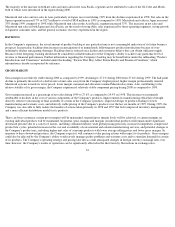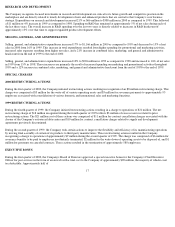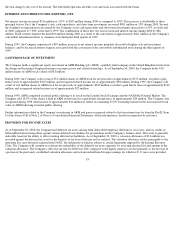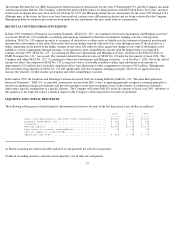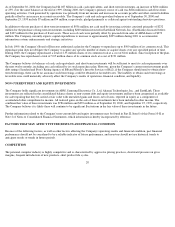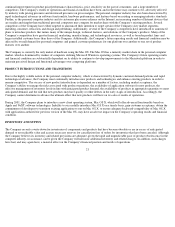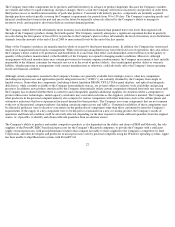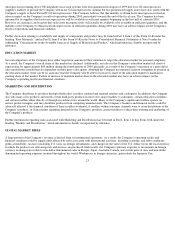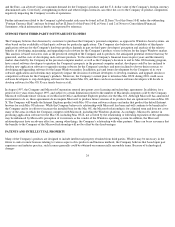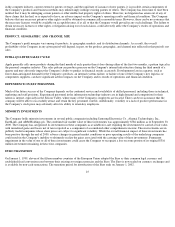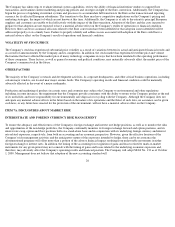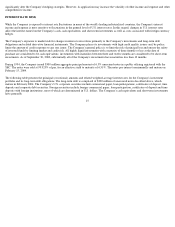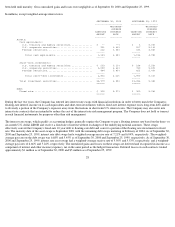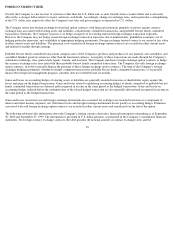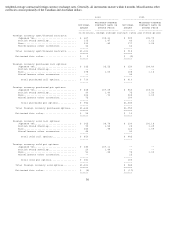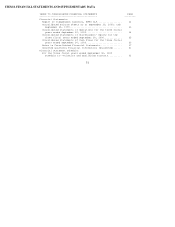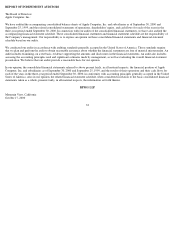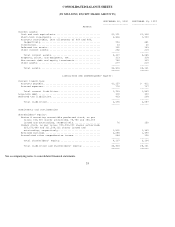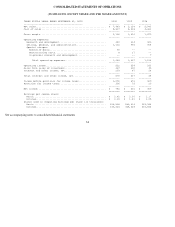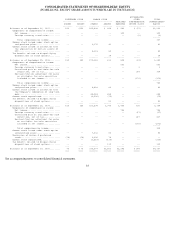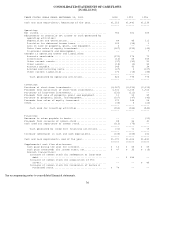Apple 2000 Annual Report Download - page 29
Download and view the complete annual report
Please find page 29 of the 2000 Apple annual report below. You can navigate through the pages in the report by either clicking on the pages listed below, or by using the keyword search tool below to find specific information within the annual report.The Company has taken steps to evaluate internal system capabilities, review the ability of financial institution vendors to support Euro
transactions, and examine current marketing and pricing policies and strategies in light of the Euro conversion. Additionally, the Company has
begun the process of updating its internal systems and processes to accommodate full transition to the Euro as the transaction and reporting
currency for its affected European subsidiaries. The transition to the Euro may have competitive implications on the Company's pricing and
marketing strategies, the impact of which are not known at this time. Additionally, the Company is at risk to the extent its principal European
suppliers and customers are unable to deal effectively with the impact of the Euro transition. Adoption of the Euro and the costs incurred to
prepare for that adoption are not expected to have a material adverse effect on the Company's results of operations or financial condition.
However, there can be no assurance all issues related to the Euro conversion have been identified or that adoption issues identified will be
addressed properly or on a timely basis. Failure to properly identify and address issues associated with adoption of the Euro could have a
material adverse affect on the Company's results of operations and financial condition.
VOLATILITY OF STOCK PRICE
The Company's stock has experienced substantial price volatility as a result of variations between its actual and anticipated financial results and
as a result of announcements by the Company and its competitors. In addition, the stock market has experienced extreme price and volume
fluctuations that have affected the market price of many technology companies in ways that have been unrelated to the operating performance
of these companies. These factors, as well as general economic and political conditions, may materially adversely affect the market price of the
Company's common stock in the future.
OTHER FACTORS
The majority of the Company's research and development activities, its corporate headquarters, and other critical business operations, including
certain major vendors, are located near major seismic faults. The Company's operating results and financial condition could be materially
adversely affected in the event of a major earthquake.
Production and marketing of products in certain states and countries may subject the Company to environmental and other regulations
including, in some instances, the requirement that the Company provide consumers with the ability to return to the Company product at the end
of its useful life, and leave responsibility for environmentally safe disposal or recycling with the Company. Although the Company does not
anticipate any material adverse effects in the future based on the nature of its operations and the thrust of such laws, no assurance can be given
such laws, or any future laws enacted for the protection of the environment, will not have a material adverse effect on the Company.
ITEM 7A. DISCLOSURES ABOUT MARKET RISK
INTEREST RATE AND FOREIGN CURRENCY RISK MANAGEMENT
To ensure the adequacy and effectiveness of the Company's foreign exchange and interest rate hedge positions, as well as to monitor the risks
and opportunities of the non-hedge portfolios, the Company continually monitors its foreign exchange forward and option positions, and its
interest rate swap, option and floor positions both on a stand-alone basis and in conjunction with its underlying foreign currency and interest
rate related exposures, respectively, from both an accounting and an economic perspective. However, given the effective horizons of the
Company's risk management activities and the anticipatory nature of the exposures intended to hedge, there can be no assurance the
aforementioned programs will offset more than a portion of the adverse financial impact resulting from unfavorable movements in either
foreign exchange or interest rates. In addition, the timing of the accounting for recognition of gains and losses related to mark-to-market
instruments for any given period may not coincide with the timing of gains and losses related to the underlying economic exposures and,
therefore, may adversely affect the Company's operating results and financial position. The Company will adopt SFAS No. 133 as of October
1, 2000. Management does not believe that adoption of the new accounting standard will
26


